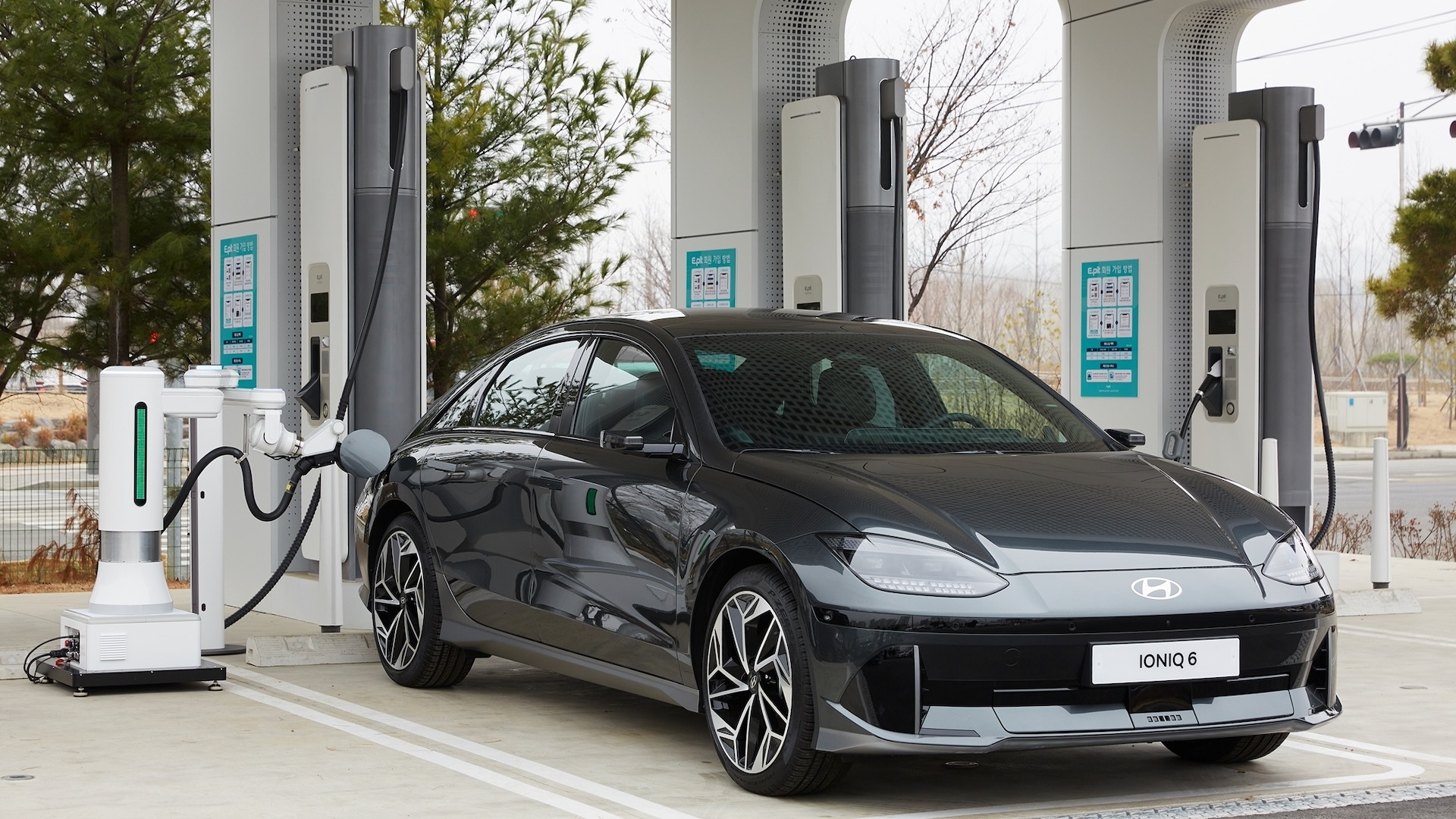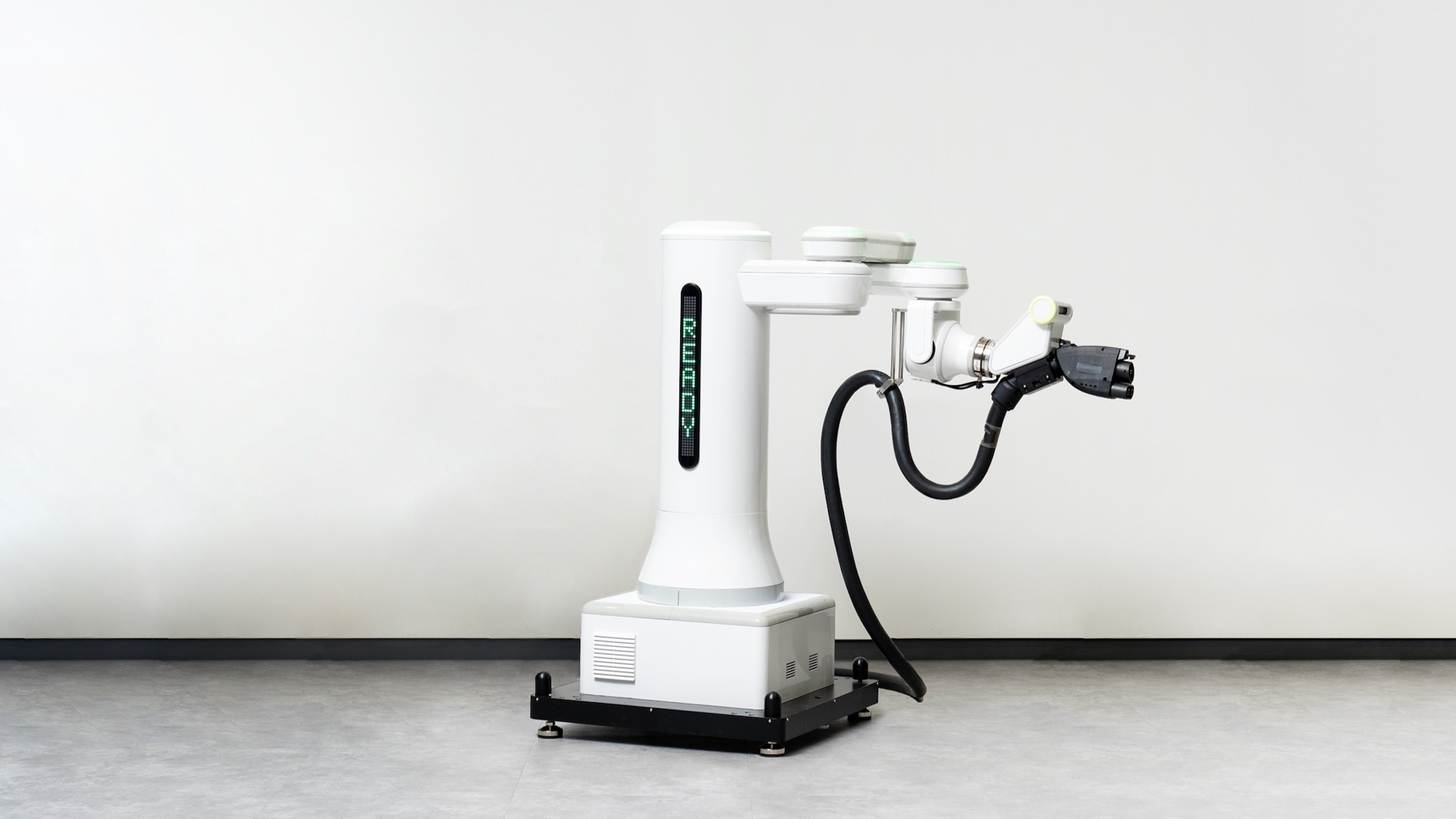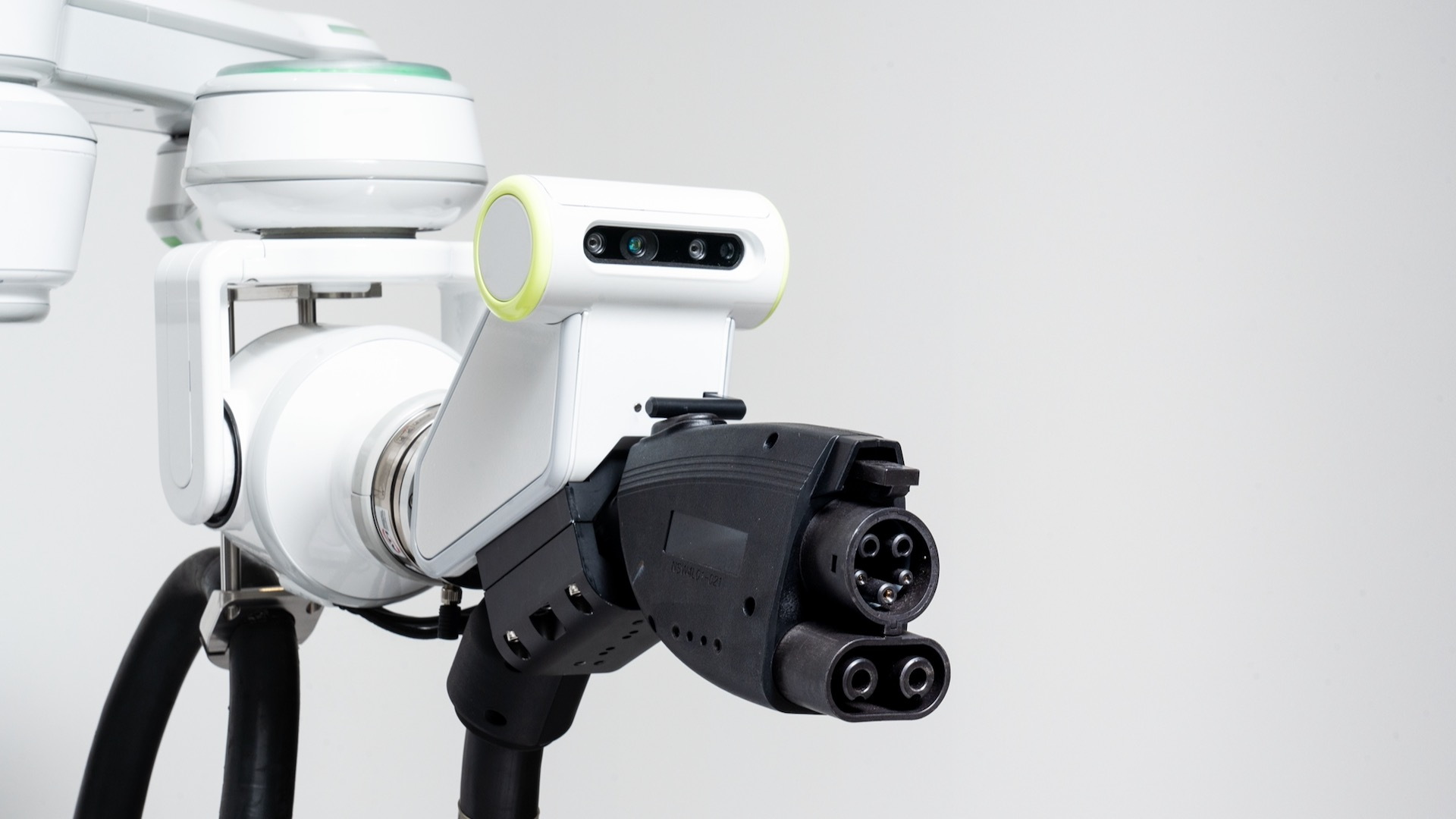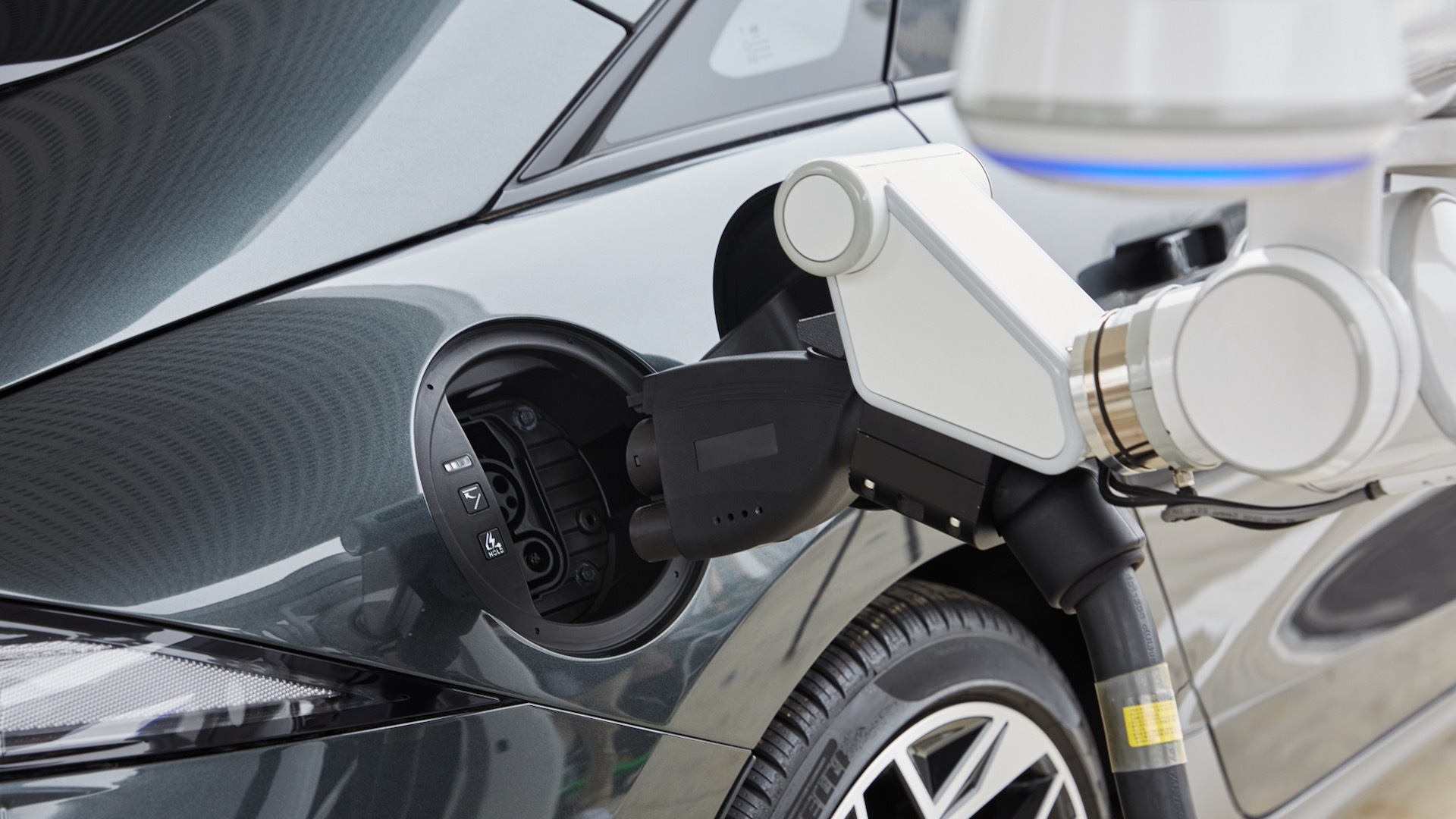Hyundai has developed a prototype charging robot that allows drivers to charge their electric cars without having to physically handle any cables or connectors.
The automaker announced the charging robot last year, but on Tuesday it released a video showing a working prototype charging an Ioniq 6 sedan at the company's main R&D center in South Korea.
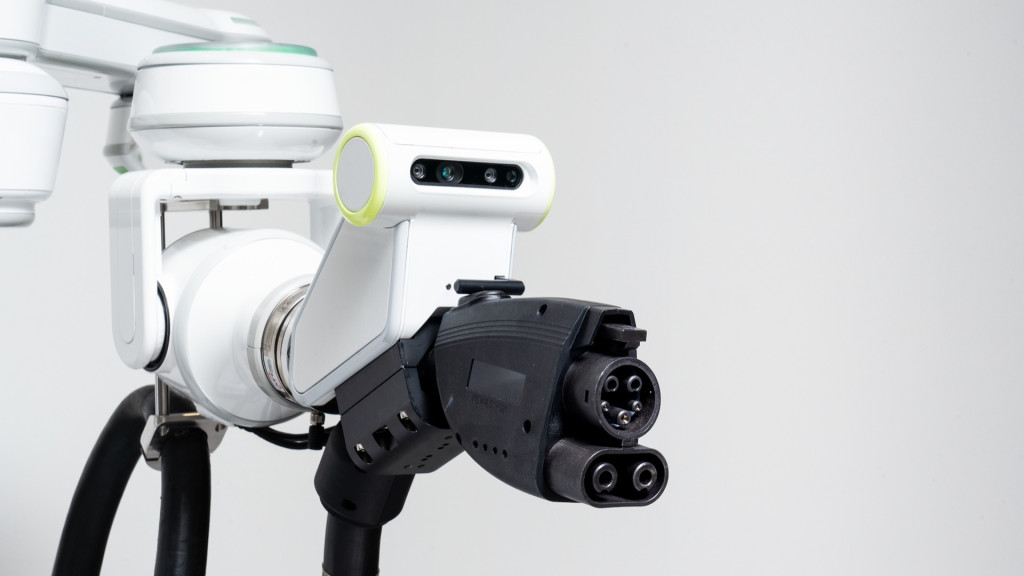
Hyundai charging robot
The video shows the Ioniq 6 reversing into a parking space using the Remote Smart Parking Assist feature already available on several U.S.-market Hyundai models. In this case, though, the charge port door also opens automatically. The robot then plugs in a charge cable, using what a Hyundai press release describes as a 3D camera-based AI algorithm to control plugging into the port. When charging is complete, the robot unplugs the car and sends a notification to the driver's smartphone.
Keeping in mind that most EV charging stations are outside and exposed to the weather, engineers built a dedicated charging station at the Hyundai R&D center to test the robot in various conditions, according to the automaker. It claims the robot "was developed to operate reliably in all environments, regardless of charger location, weather, and potential obstacles."
Robotic charging will likely be necessary for self-driving cars, which won't always have a driver onboard to plug them in. It could also help make EVs workable for those with mobility issues. In the U.S. at least, there are no full-service EV charging stations with attendants who could provide assistance with plugging in and unplugging from a charger.
Hyundai hasn't confirmed production plans for its charging robot, and it certainly isn't the first automaker to demonstrate such a concept. In 2015, Tesla showed a robotic charger with a snake-like cord that was the stuff of nightmares. More recently, Stellantis showed a mobile inductive charging robot alongside the Ram 1500 Revolution BEV Concept at CES this year. Ram plans to launch its first production electric truck, the 1500 REV, in 2024, but it's unclear if inductive charging will be included.
